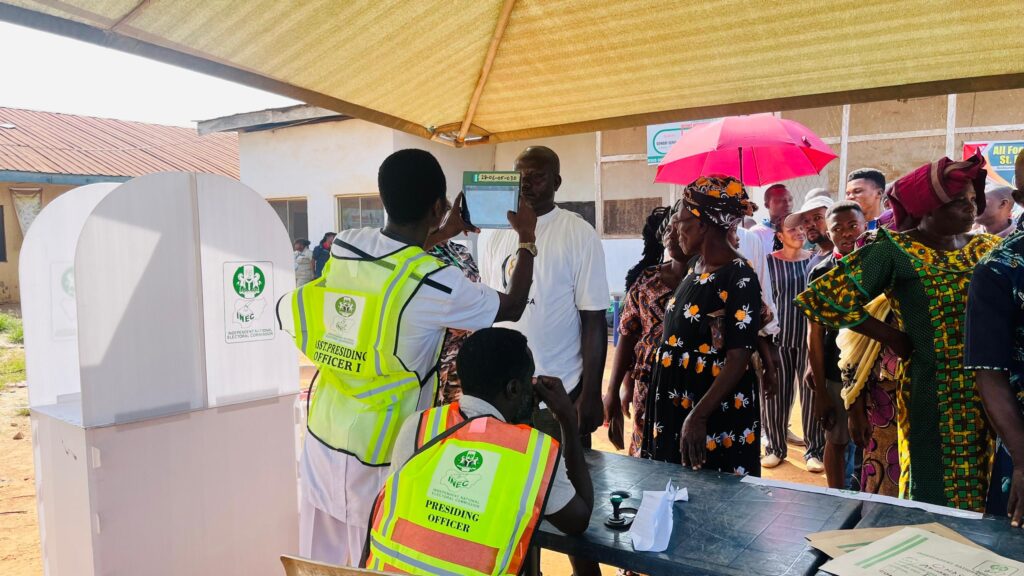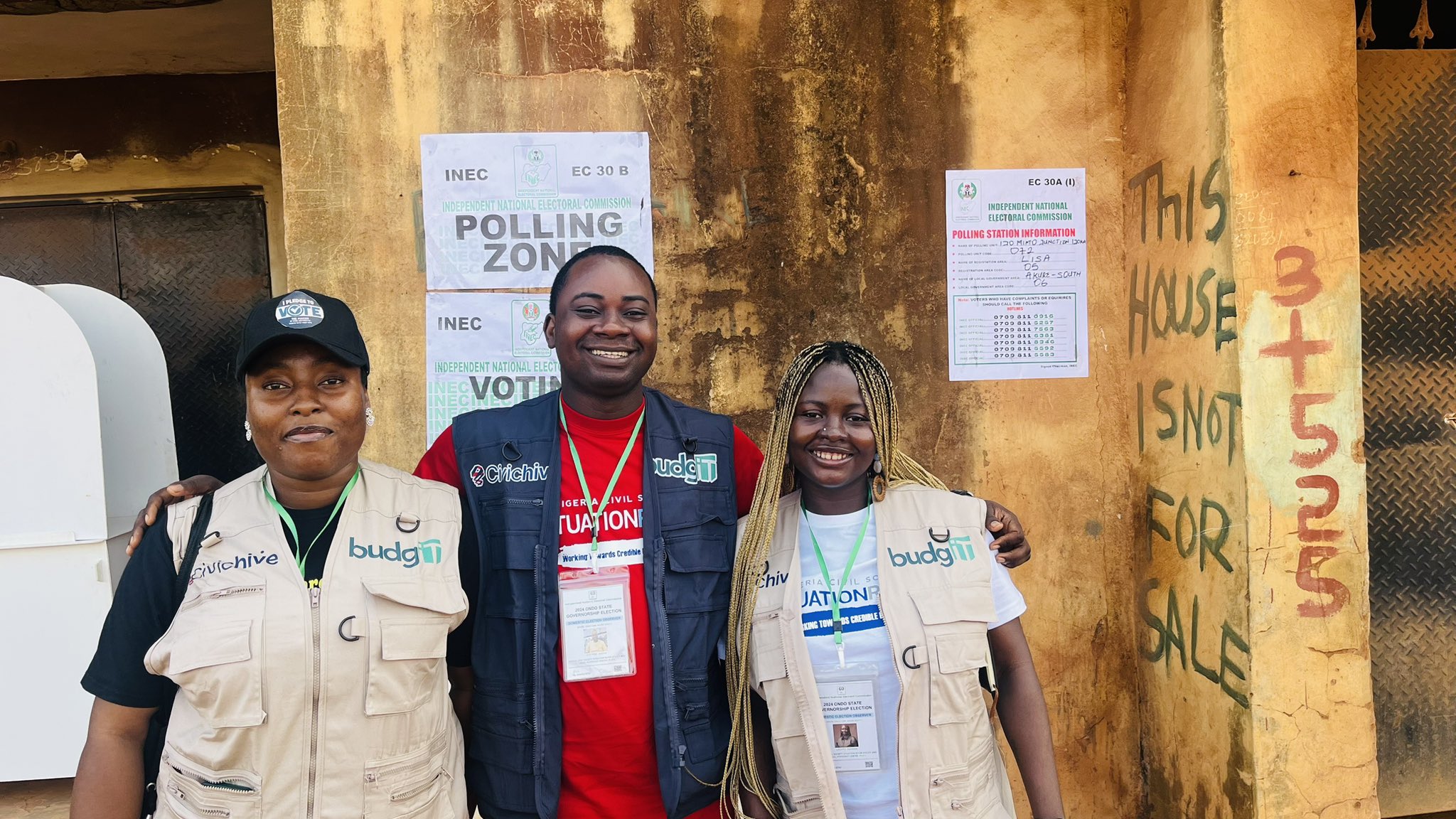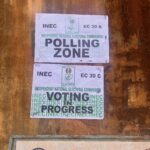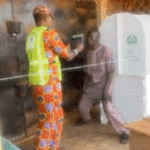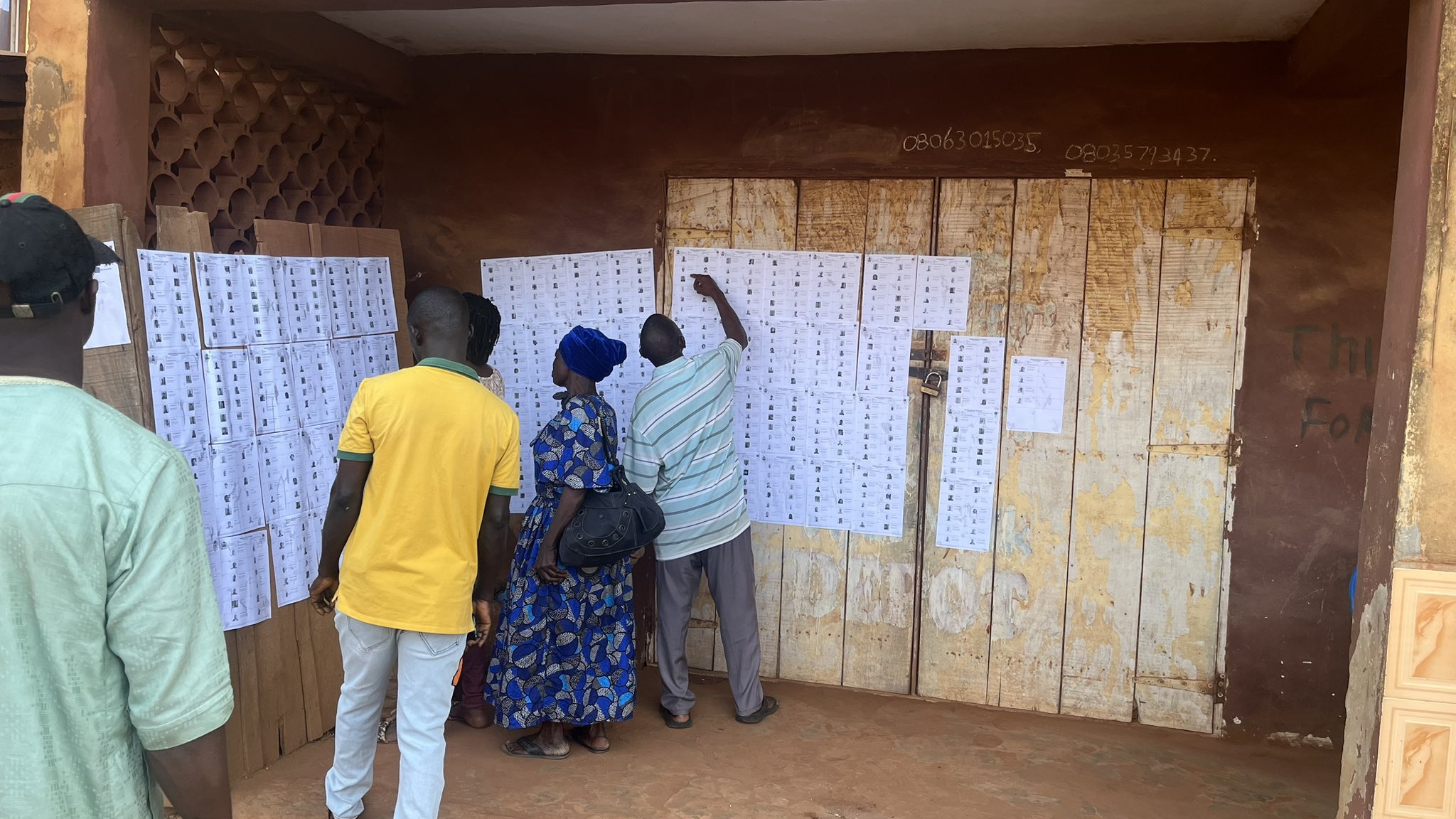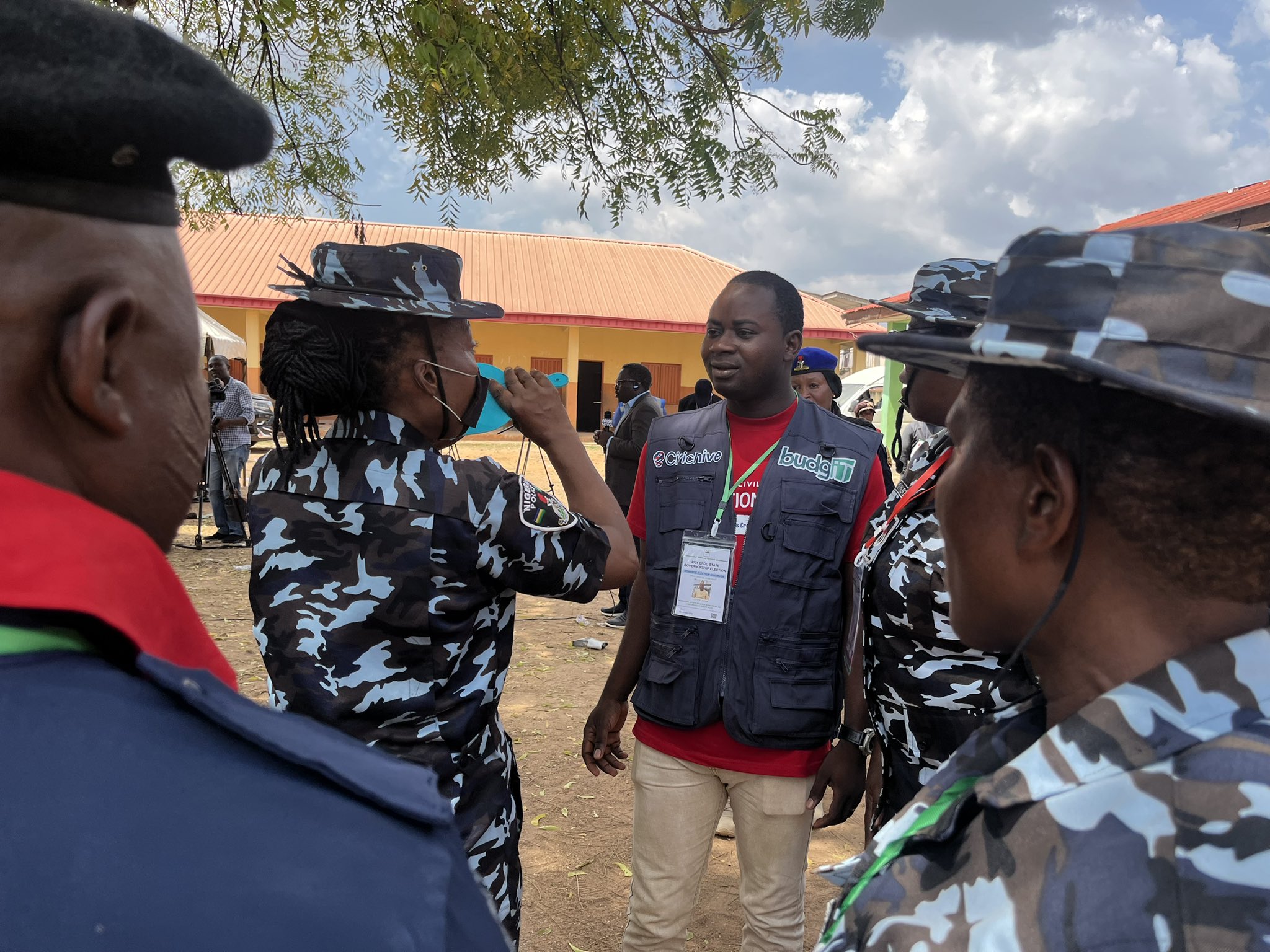Opinion by Ayomide Ladipo.
Last week was for firsts. It was my first time visiting Akure. I had always passed through the city to Abuja/Kano/Bauchi on previous trips, but I had yet to do a stopover in the town. I was not excited about the trip because the last time I was excited about visiting a new South-West city – Ado-Ekiti, I was sorely disappointed with the inhospitality of the people in the state.
It was my first time as an accredited election observer. I observed elections in my polling units (PU) in the 2021 local government elections in Lagos and the 2023 elections. However, this was different. I was an accredited INEC observer who could freely move around to monitor the polls in all the Wards and polling units in Akure South LGA.
The 5-hour journey to Akure from Ojota Park in Lagos was uneventful. Beyond carrying someone’s baby for 2 hours during the trip (a lesson to reinforce why I don’t want kids) and NDLEA causing a ruckus just before we got to Ijebu Ode, everything was boring.
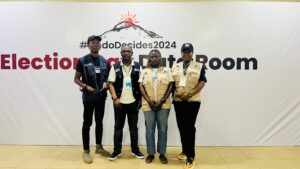 On Friday, during our visits to different organisations’ election analysis centres (CDD West Africa and Kimpact Development Initiative), and the Nigeria Civil Society Situation Room, I engaged with residents to understand their thoughts about the gubernatorial elections. Their responses reinforced the data and predictions of analysts and civil society members – voter apathy would impair the election.
On Friday, during our visits to different organisations’ election analysis centres (CDD West Africa and Kimpact Development Initiative), and the Nigeria Civil Society Situation Room, I engaged with residents to understand their thoughts about the gubernatorial elections. Their responses reinforced the data and predictions of analysts and civil society members – voter apathy would impair the election.
During one of the trips around the city, our driver claimed he had voted APC during the presidential elections. He was currently suffering and regretting his decision, so he wouldn’t leave his house on Saturday to make another regrettable choice. Two bike guys said they would not vote because the outcome was already decided before election day, and the last man said he would vote for PDP alongside his wife.
The gubernatorial election saw 18 candidates vie for the seat, including the incumbent governor, Lucky Aiyedatiwa of the All Progressives Congress (APC), former deputy governor Agboola Ajayi of the main opposition People’s Democratic Party (PDP), and 16 others. Fun fact: The two leading candidates once served as deputy governor to the Late Governor Akeredolu during his term in office, making the election a major contest between two deputies.
Election Day
On the eve of the election, we mapped the PUs and wards we would visit throughout the day. With my colleagues, Dorcas from the DEAN initiative, Temidayo from Civic Hive, and Joshua from Tracka. We arrived at our first polling unit (PU 72), Ijo Mimo, by 8:30 am. INEC officials had arrived and were just setting up, so we assisted them in getting everything ready.
Accreditation started at 8:55 am, and that was where our woes began. Fingerprint capture on the BVAS (Bimodal Voter Accreditation System) machine was not working. It was also not capturing people’s faces, which was the alternate verification model. Five people went simultaneously, but the machine failed to accredit them. People started getting anxious and agitated.
Later, we learned that a white background was needed to capture people’s faces, and then we had to take down a burial banner (RIP to the deceased) to use the white side as a banner. It worked for a while, then stopped.
The presiding officer called the RAC (Registration Area Centre) Tech for another machine, and he told her there was none. He said other PUs were facing the same issues, so they should manage it like that. We agreed, and then it got worse. She called again, and he told her to send a bike guy to Ebenezer Primary School to get another one. Since we had a standby car, I volunteered to go instead.
When we arrived, he said there was no machine to give, and it wasn’t even possible to do that because they would have to transfer the data from the previous machine to the other. So, instead, he will follow us back to the PU to see how he can help us fix the problem. By the time we got back to the PU, the machine had started working properly (BVAS had called us a liar 😁)
In my PU, there were 772 registered voters, and only 100 people were accredited. Another PU we visited had 1,200 registered voters, and less than 200 people were accredited. The final voter turnout was 24%. In 2012, the turnout was 38.12%, increasing to 42.95% during the 2016 election. It dropped to 32.7% during Gov Rotimi Akeredolu’s re-election in 2020. This is the lowest turnout in Ondo governorship election history despite a high PVC collection rate of 85% (Independent National Electoral Commission, 2016).
Voter apathy was high because neither of the candidates commanded any public sway. The votes were for party choices. Lucky Aiyedatiwa, the incumbent governor, could only find his way into some people’s hearts because of the ‘persecution’ he faced, as he was right in the smack of impeachment proceedings before his predecessor, Rotimi Akeredolu, passed on.
The low turnout could also be attributed to the zoning strategy. The candidates of the two major parties hail from Ondo South, which contributed to other regions not throwing their fight into the race. Ondo North, the region with the highest turnout in the race, was rumoured to have done so because the APC Deputy governor nominee, Dr Olayide Adelami, hails from the region. (Adekaiyaoja, Angalapu, & Adebowale, 2024)
In Ondo Central, despite an 81% collection of PVCs and being the zone with the most significant registered voters, the election recorded a 19% turnout. In Ondo South, a 90% PVC collection rate resulted in a 26% voter turnout, while with an 87% PVC collection rate, Ondo North recorded the highest turnout with 31%.
Additionally, the country’s prevalent economic situation, with 33% inflation and 40% food inflation, has contributed to the electorate’s disillusionment with elections, as many don’t want to directly partake in what they believe eventually harms them.
INEC officials are accessory to vote-buying and bullying at the polls. At two other polls I visited, they watched voters boldly display their ballot papers to party agents without warning. When confronted with these issues, they retorted that we were mainly observers and could not tell them what to do.
The security officials were stooges and were also caught in the crossfire of vote-buying. They sat and watched as party thugs bullied voters, and heated arguments ensued without attempting to douse the tension. In a video circulating online, where a voter was admonishing a policewoman to ‘be at alert’, the officer sat comfortably on a chair.
At the same time, armed men arrived and started shooting before she scrambled up to flee. Her fellow police officers fled the scene without attempting to face the thugs who eventually carted away the ballot box. The video was a stark representation of the lackadaisical attitude displayed by security agents at the polling units across the state.
Final Word
It is a bug, not a feature.
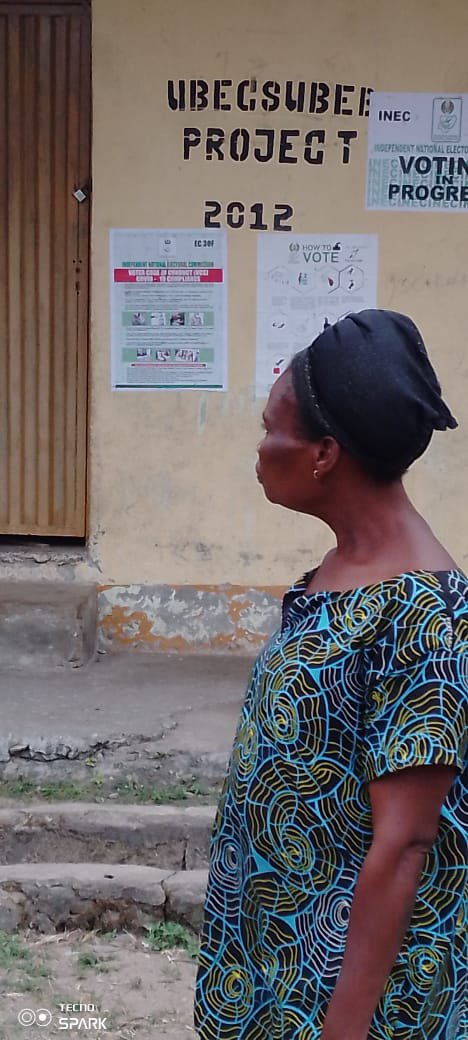
The only silver lining in this election was the timely upload of results on iREV. However, everything else still screams we are in the dark ages. There are too many moving parts and human interference that shouldn’t exist. INEC has adequate resources to improve its archaic voting processes and systems but chooses not to.
When next they gather for their week-long training in highbrow hotels with substantial per diem and estacodes, they should ask themselves if the sham they conduct on the field matches the training they receive.
In conclusion, people are becoming less interested in participating in democratic systems that have failed to deliver dividends and continue impoverishing them. All stakeholders have to find a solution to the growing discontent, or the people might find alternative solutions that are viable or not.
References:
- Adekaiyaoja, A., Adebowale, G. & Angalapu, D. (2024). A Tale of Two Deputies – Reviewing the political terrain of the 2024 Ondo governorship election. Centre for Democracy and Development.
- Independent National Electoral Commission. (2016). APC Candidate, Rotimi Akeredolu, Declared Winner of Ondo Governorship Election. Retrieved November 20, 2024, from https://inecnigeria.org/?news=apc-candidate-rotimi-akeredolu-declared-winner-of-ondo-governorship-election
